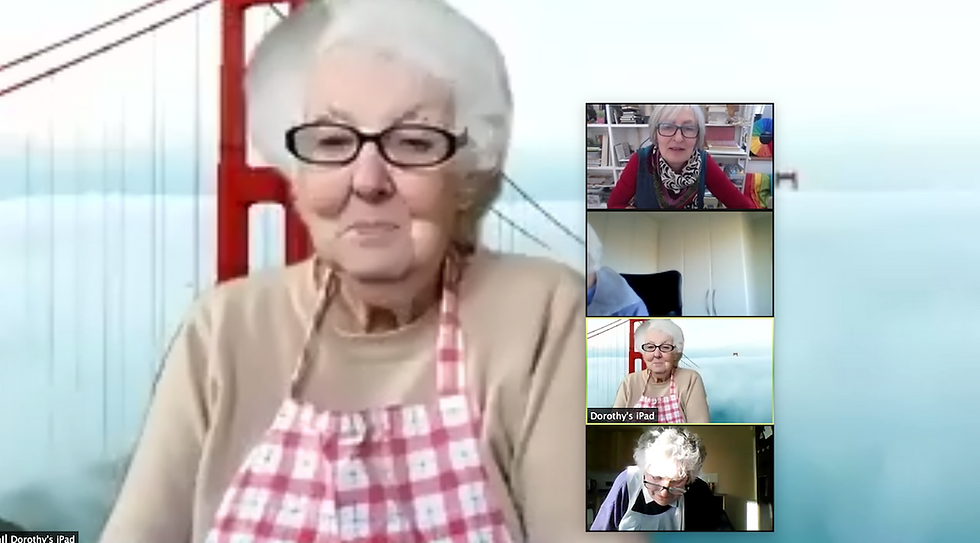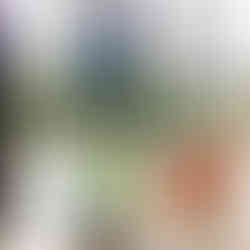Community Art in a time of Coronavirus
- Woody Kitson
- Feb 3, 2021
- 3 min read
Written by Paul Steele, Managing Director of Junction Arts. Junction Arts has been delivering community arts programmes in disadvantaged communities for over 44 years. They help communities facing social barriers such as poverty, poor health, and low aspirations to create a better future through the arts.

We have all seen how important creativity and culture have been over the past year. Whether you’ve immersed yourself in a good book or TV box set or have escaped into your favourite music, culture has been our reliable friend, a welcome distraction and a familiar comfort in a difficult year. Alongside culture, people have found new ways to be artistic at home and there has been a creativity boom. There are many reasons for this but ultimately as human beings we want to express ourselves and there is no better form of self-expression than through creativity.
At Junction Arts we have been championing the vital role that arts participation can play in all our lives for over four decades. We believe the arts are for everyone and individuals and communities can build a better future through the arts. This vision is ambitious and idealistic but we’ve witnessed first-hand how participation in the arts can change a person and bring a community together. We usually work in a specific ‘place’, co-creating projects and events with local people, developing creativity from the ground up that has a long-lasting impact on the people that take part.
We believe the arts can give people a ‘voice’, develop confidence, skills and aspirations, bring communities together and give people opportunities and purpose. The ‘Creative Health Report’ (2017) produced by the All- Party Parliamentary Group on Arts, Health & Wellbeing evidenced how the arts can help meet major challenges including ageing, long-term conditions, loneliness and mental health, with 82% of people taking part in arts activities from deprived communities enjoying greater wellbeing. It also evidenced how community-based arts activities help children and young people explore identities, improve self-esteem and increase coping strategies.

Ultimately the arts give us a space to make sense of the world, which is probably why they were so important in 2020. When there is so much disruption and uncertainty in the world the arts can be used as a vehicle to process and legitimise our feelings.

Like so many others we had to innovate and adapt our programme in 2020. Our focus was to ensure we continued to support health & wellbeing by helping people be creative, keep learning and stay connected. As a response we developed a range of initiatives that kept people connected through creating participatory artwork. The artists that we work with have also had to adapt to alternative ways of delivery. The foundations of community/participatory arts are based on physical connections. The process of participation and creating the artwork is just as important as the artwork itself. To re-create that ‘at-distance’ is fraught with conflict and tensions about what a participatory experience actually is. However, we did it, working with our artists we distributed ‘Curiosity Boxes’ to primary schools (including art and tech materials), encouraged people to post poetry about their ‘place’ on a virtual map, linked together 5 care homes and 10 isolated individuals through a series of online workshops and delivered our annual Bright Winter Nights festival using Click & Collect, artist surgeries and recreating a parade on social media. The innovation from creatives and artists to ‘find a way’ and keep going was incredible and the response from our communities was even more incredible with over 4,500 people engaging with our programme last year.

So, it is with a renewed confidence that we move forward into 2021. The community arts sector was tested and traditional methods of delivery became irrelevant, yet we never stopped delivering. Bringing people together through creativity thrived because above all else people wanted to be creative! More than ever before we feel vindicated that community arts is just as important now than it has ever been, and as we emerge from a post lockdown world it will become more important as a way to try and make sense of the world. Culture and creativity were at the heart of surviving 2020 and culture and creativity will be at the heart of recovery in 2021.
WebinArt members can access our upcoming webinar 'How to Approach Community Arts Programmes' with Junction Arts on 9th February at 6pm. During this webinar, Paul will outline Junction Arts approach to community arts delivery and the key elements to a successful community arts programme. You will learn - how to develop a ‘place-based methodology’, the importance of ‘process’ and how co-creation can be embedded at all stages of the programme, including the Evaluation.
To learn more about joining WebinArt, click here.

See more of the work that Junction Arts do here -














Comments